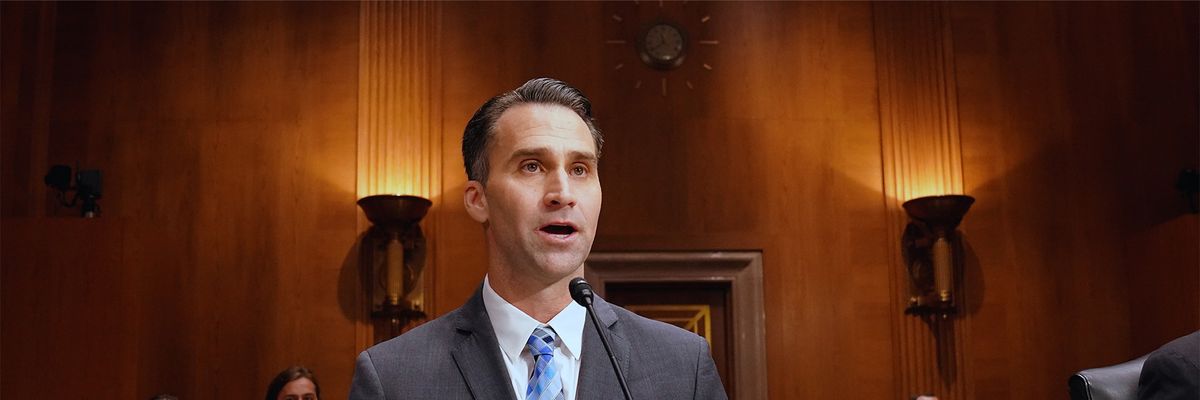The recent merger between the PGA Tour and Saudi Public Investment Fund (PIF)-backed LIV Golf is not simply a business deal, but rather a part of a long-term foreign influence effort, warned the Quincy Institute’s Ben Freeman during his testimony in front of the Senate permanent subcommittee on investigations on Wednesday.
“We’d be naive to believe that the PIF’s actions related to the PGA Tour are not part of the Kingdom’s much larger lobbying, public relations, and broader influence operation in the U.S,” Freeman said.
In June, the PGA Tour and LIV Golf — having been embroiled in a legal fight for over a year — announced that they were joining forces. According to the official announcement of the merger, the PIF, chaired by Crown Prince Mohammed bin Salman, would “initially be the exclusive investor in the new entity,” and, going forward, “have the exclusive right to further invest in the new entity.”
Freeman says this so-called sportswashing is the latest means by which authoritarian regimes and other foreign actors look to launder their reputation in the U.S. “Foreign powers spend more than a half billion dollars every year on lobbying and public relations firms,” he previously wrote in Sports Business Journal. “Dozens of former senators and representatives and hundreds of former high-ranking U.S. military officers are on their payrolls. They donate tens of millions of dollars every year to influence the nation’s top think tanks and give billions to America’s colleges and universities. ”
Saudi Arabia’s sportswashing campaign has already moved beyond golf, and beyond the U.S., including recent investments into soccer and tennis. Four soccer teams owned by the PIF spent a combined $886 million on player transfers this summer, with three of the the 10 biggest spending clubs in the world being owned by the Saudi fund, according to CNBC.
The Saudi Arabian government has been accused of committing gross human rights abuses, a number of which were described during the hearing, including the killing of hundreds of asylum seekers at the country’s border with Yemen, the assassination of journalist Jamal Khashoggi in 2018, and the recent death sentence for a retired teacher who criticized the Saudi government on X, the social media platform formerly known as Twitter. Questions have even been raised about the Saudi government’s links to the September 11, 2001 terror attacks. But, says Freeman, their goal is to get the general public to ignore these violations. “They want Americans to associate Saudi Arabia with golf, and not with 9/11."
Business-wise the PIF is unlikely to see a positive return on investment from the golf merger. “If the Saudi government is not buying into a profitable investment what are they buying?” Freeman asked. “In short, silence. They want to muzzle Americans critical of the regime. And, they want to rebrand themselves. ”
These rebranding efforts can have serious implications for American foreign policy, as many foreign governments seek to affect Washington’s agenda. As Freeman pointed out, the hearing takes place as the Biden administration weighs offering Riyadh a security guarantee in exchange for normalizing relations with Israel.
How Washington reacts also has consequences beyond Saudi Arabia, said Freeman. "If the U.S. once again offers little resistance or oversight of an authoritarian regime’s sportswashing efforts, this could become a blueprint for how to garner influence in the U.S."
















